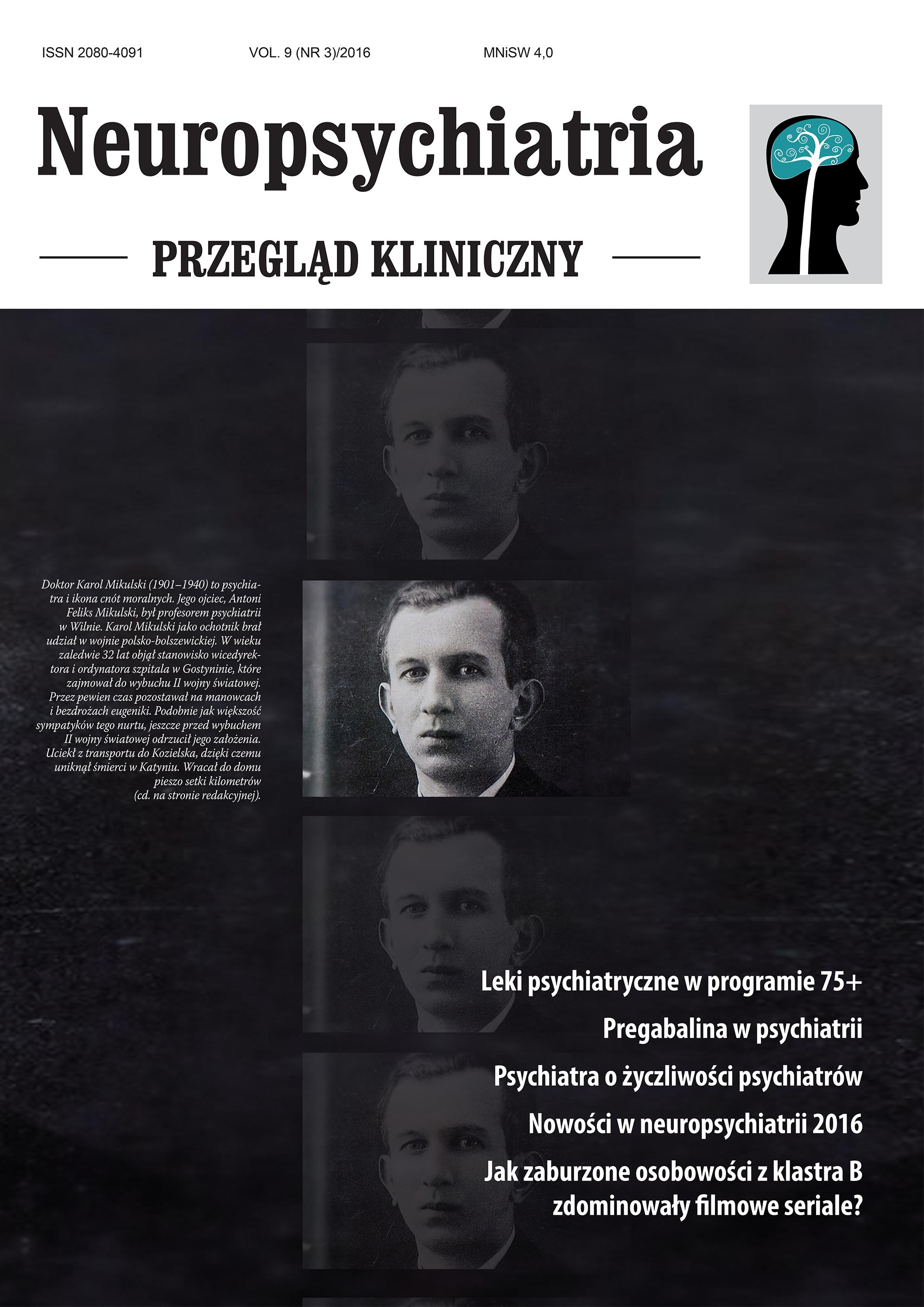Nowości w neuropsychiatrii w 2016 r. Artykuł przeglądowy
##plugins.themes.bootstrap3.article.main##
Abstrakt
Postęp odkryć w neuronauce stopniowo przekłada się na praktyczne – farmaceutyczne i instrumentalne – metody leczenia OUN. Innowacyjne zabiegi, jak wszczepianie elektrod głęboko w mózgu w leczeniu ciężkich zaburzeń neuropsychiatrycznych, oraz badania nowych leków dają obiecujące rezultaty. Metody te opierają się na prawdziwym zrozumieniu funkcjonowania mózgu w zdrowiu i chorobie. Jest coraz bardziej możliwe prowadzenie leczenia zaburzeń neuropsychiatrycznych, sięgając bezpośrednio do odkryć nauk skoncentrowanych na OUN. W artykule przedstawiono nowe leki i technologie, które umożliwiają zwiększenie skuteczności leczenia w neuropsychiatrii. Zaprezentowano ponadto nowe dane na temat wpływu zmian stylu życia na stan psychiczny.
##plugins.themes.bootstrap3.article.details##

Utwór dostępny jest na licencji Creative Commons Uznanie autorstwa – Użycie niekomercyjne – Bez utworów zależnych 4.0 Międzynarodowe.
Copyright: © Medical Education sp. z o.o. License allowing third parties to copy and redistribute the material in any medium or format and to remix, transform, and build upon the material, provided the original work is properly cited and states its license.
Address reprint requests to: Medical Education, Marcin Kuźma (marcin.kuzma@mededu.pl)
Bibliografia
2. Nillni YI, Wesselink AK, Gradus JL et al. Depression, anxiety, and psychotropic medication use and fecundability. Am J Obstet Gynecol 2016; 215(4): 453.e1-453.e8.
3. Bandelow B, Sher L, Bunevicius R el al; WFSBP Task Force on Mental Disorders in Primary Care; WFSBP Task Force on Anxiety Disorders, OCD and PTSD. Guidelines for the pharmacological treatment of anxiety disorders, obsessive-compulsive disorder and posttraumatic stress disorder in primary care. Int J Psychiatry Clin Pract 2012; 16(2): 77-84.
4. Owen RT. Pregabalin: its efficacy, safety and tolerability profile in generalized anxiety. Drugs Today 2007; 43(9): 601-610.
5. Sevigny J, Chiao P, Bussière T et al. The antibody aducanumab reduces Aβ plaques in Alzheimer’s disease. Nature 2016; 537(7618): 50-56.
6. Lozano AM, Fosdick L, Chakravarty MM et al. A Phase II Study of Fornix Deep Brain Stimulation in Mild Alzheimer’s Disease. J Alzheimers Dis 2016; 54(2): 777-787.
7. Wiler J. Mehrheit will konkretere Hilfe vom Arzt. Exit 2016; 3: 6-9.
8. Policja .
9. Bartyzel M, Łoza B, Grabowska A et al. Nowe formy cywilizacyjnej depresji i ich farmakologiczne leczenie. Neuropsychiatria 2016; 9(2): 67-71.
10. OECD .
11. IMS .
12. Kajitani S, McKenzie C, Sakata K. Use it too much and lose it? The effect of working hours on cognitive ability. Melbourne Institute Working Paper Series 2016; 7. The University of Melbourne, Melbourne 2016.
13. Wu L, Lu Y, Jiao Y et al. Paternal Psychological Stress Reprograms Hepatic Gluconeogenesis in Offspring. Cell Metab 2016; 23(4): 735-743.

